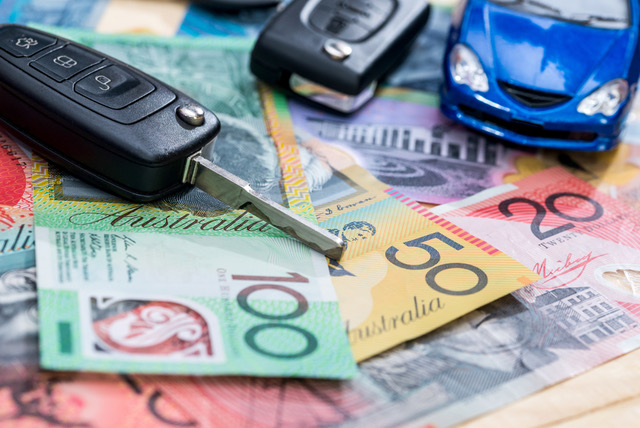Australians pay more than $1.4 million in interest on car loans every day and owe $148 billion in consumer debt. They borrowed more than $8 billion in 2017 alone to buy new cars, mostly SUVs and light commercials. Now the shine is going off both car sales and car debt.
Car sales are down
It is the worst downturn in new car sales since the GFC, with 13 consecutive months of lower monthly sales. Australians bought 268,538 new vehicles in the year to March 2019, 7.9% less than in the previous year.
| Ratio | Vehicle type | Sales change |
| 44.3% | SUVs | -3.5% |
| 31.0% | Passenger vehicles | -17.8% |
| 21.3% | Light commercials | -0.4% |
The biggest fall in sales of the top three favourites was in passenger vehicles.
Meanwhile, our love affair with new SUVs and light commercials shows no signs of abating. No wonder a certain politician said we mustn’t attack the Aussie ute! It’s the only vehicle type that appears to be holding up.
Car debt is up
Total consumer debt in Australia sits at $148 billion, of which 35% or $52 billion is for credit cards. Australians borrowed $8 billion to buy new cars in 2017 and paid $513 million in interest. This almost doubled the amount they borrowed in 2009.
Industry sources say 80% of new cars bought privately are financed and dealerships arrange half of these. ASIC claims the proportion of new cars financed is even higher at 90%, and dealerships arrange 39% of these. It’s clear dealerships take a large role in financing new vehicles. St George and Macquarie dominate car finance, either directly or under car company brands. Some companies have their own finance divisions, such as BMW, Mercedes, Holden and Toyota.
Australian ACA Research found prospective purchasers do their research on car loans – and half the time choose a lender – before visiting a dealership:
- 81% researched finance options online
- 76% considered their finance options before test driving a vehicle
- 51% chose a lender before visiting a dealership.
No more flex commissions
Until November 2018 when ASIC stopped the practice, car dealers used so-called “flex commissions”. They could charge higher interest rates than the lender to increase their commission on the loan. For example, the salesperson could charge 12% when the finance rate was 5% and get a $10,000 kickback for a $50,000 car – on top of the sale commission.
Dealers can no longer increase interest rates quoted by the lender, but they can reduce them up to 2%. If they do, their commission on that loan reduces too. These new regulations restricting dealer interest rates apply only to private buyers.
Currently, car dealers do not need a credit licence to sell loans because they send all loan documents to the bank. The bank itself must have an Australian Credit Licence and act under responsible lending laws. This confusing practice may also change in the future.
Are we paying our debt?
ASIC says delinquency rates for car loans (failure to pay) have gone up since 2012, but claims they remain low:
- Only 2% of car loans are 30 days in arrears
- Less than 1% of loans result in the lender repossessing the vehicle.
However, Deutsch Bank analysts recently noted a doubling from 1% to 2.4% in Westpac’s car loans more than 90 days in arrears. (Westpac is the only bank that discloses car loan arrears.) They thought this could be a sign of future problems with loan debt.
Some say borrowing for a depreciating asset like a vehicle is not a very good idea. After loan payments, you still have to register it, pay for a green slip, and cover the running costs each and every day. If you can’t buy a vehicle outright, the newly regulated climate for loans may offer some better deals.


your opinion matters: